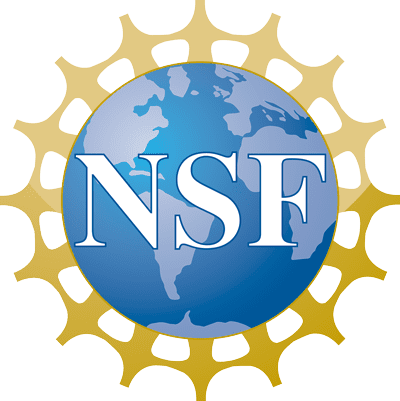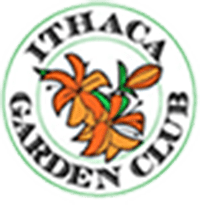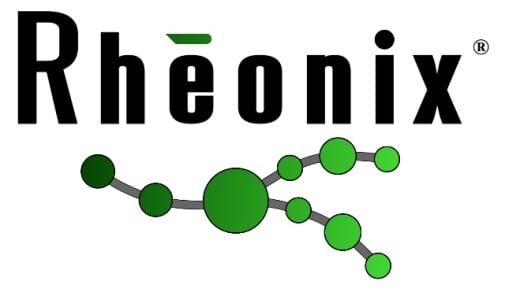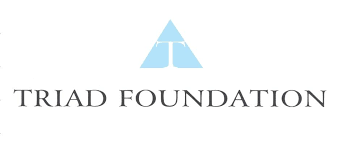Application for the 2024 Undergraduate Research Programs is now open!
Undergraduate Application Dates
All undergraduate research applications are open from October 21, 2023 until January 31, 2024.
Tentative Program Start and End Dates
June 3 – August 9, 2024: All Undergraduate Research Programs
Selected applicants are expected to participate for the entire duration of the program into which you are admitted. Selected applicants must be able to start and end the program on the dates listed.
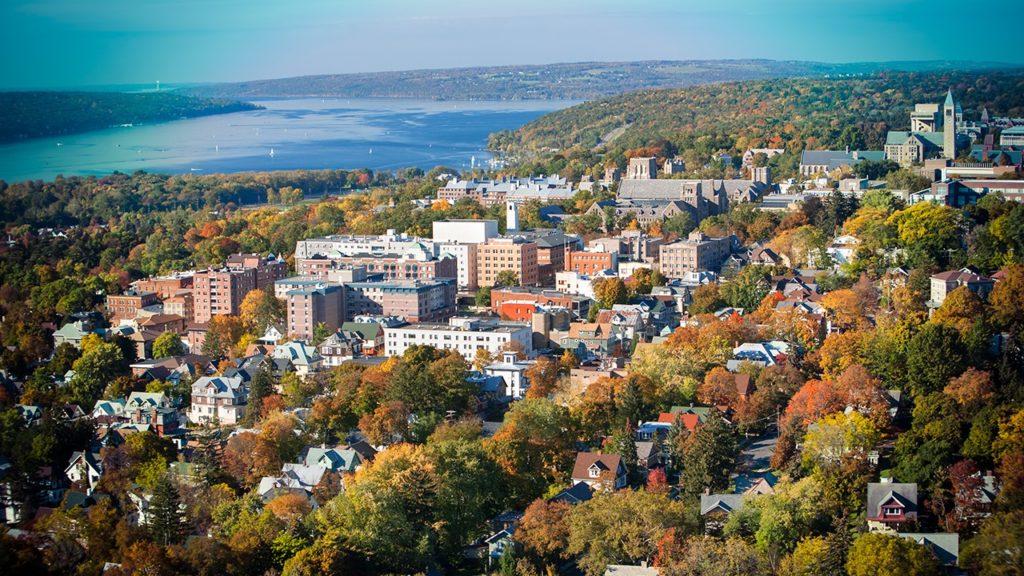
(Photo of Ithaca, NY from an aerial view including Cayuga Lake)
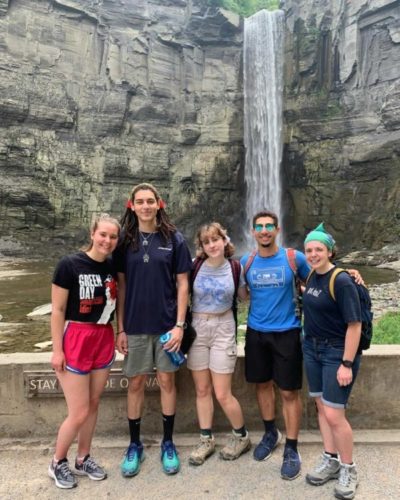
About Ithaca
Ithaca has consistently been named one of the top 100 places to live, one of the best “green” places to live, and a top 10 recreational city. Located at the southern end of Cayuga Lake (the largest lake of the Finger Lakes), Ithaca has hundreds of natural wonders to explore from gorges and waterfalls, to hiking trails, swimming holes and so much more.
Also, named one of the “foodiest” towns in the US, Ithaca has a vibrant and cultural downtown, with more restaurants per capita than New York City, and one of the best farmers market in New York State. You will find multiple venues for live music, events sponsored by Cornell, and unique festivals throughout the region. The summer internship program also provides opportunities for a day trip to New York City and Niagara Falls, and frequent buses to and from NYC to accommodate weekend trips.
Living in Ithaca and on Cornell’s campus this summer will be an unforgettable experience.
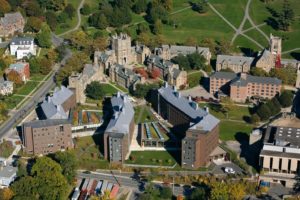
(Photo of Cornell’s West Campus Housing)

(Photo of Cornell’s West Campus Housing)
Undergraduate Housing
Undergraduate summer researchers will be living in houses/dormitories on the Cornell University campus, with all housing costs covered by the program. Most students will be housed in double rooms with bathrooms, dining/living areas and shared kitchens. Card operated laundry service is also accessible in the building.
Summer interns will be sharing dormitories with their fellow program participants, along with REU students from other summer research programs taking place at Cornell. In addition to the $7,000 research stipend, interns will be provided a $850 meal stipend and free housing. The $850 meal stipend is to help offset the cost of purchasing a meal plan through Cornell Dining, or to help purchase food throughout the summer.
While most places on campus are accessible by walking, free bus passes will also be provided, allowing easy access to any location in Ithaca!
Undergraduate Program FAQs
Who can apply to NSF & USDA funded Research Experiences for Undergraduates?
To be eligible for any Research Experiences for Undergraduates at BTI & Cornell, students must meet all eligibility requirements:
- US citizens or permanent residents of the US.
- Undergraduates who are either currently enrolled in a degree-granting program and have not graduated with a bachelors degree by the start of the program OR students who have not earned a bachelors degree and are currently enrolled or in the process of transferring to a degree-granting program.
- 18 years of age before June 2, 2024
How will I be compensated?
Undergraduates receive a competitive stipend ($7,000), meal allowance ($850), travel assistance (up to $700) and fully funded group housing on the Cornell campus.
Undergraduate Research Programs are funded by the National Science Foundation, (Research Experiences for Undergraduates, REU Award #1850796) and the United States Department of Agriculture (2018-67032-27699).
Where will I be living during the summer as an undergraduate intern?
Undergraduate interns will be provided with housing on the Cornell University campus approximately one mile from your work place. All undergraduate interns will be housed together in the same building and will have a roommate for the summer or live in a suite. Roommates will be randomly assigned based on age, gender, and a roommate survey given prior to the start of the program.
If for any reason you choose not to live in the Cornell dorms during the summer, you will not be reimbursed by the program for living expenses.
Do you provide meals?
We do not provide meals, but we do provide a $850 meal allowance to undergraduate researchers. There are many great restaurants near the Cornell campus and a variety of places to shop for groceries. The dorms will have a shared fridge and mini fridges will be available for rent.
Each Wednesday, the program will provide a lunch as part of the Wednesday Summer Seminar Series for undergraduate students.
Those interested in utilizing Cornell University’s dining program can find more information here: Cornell Dining Summer Meal Plans.
Please note: The Cornell meal plan dates are not the same as the BTI internship dates, and participants should plan accordingly. You will not be able to enroll in a meal plan until you receive your net ID on the first day of the internship. The dorms will also have kitchens if meal plans do not fit your schedule/preference, but please be advised that this will be a shared kitchen with many others in the dorm.
Is there a transportation service?
Undergraduate interns will receive a Cornell ID card, which will allow access to the TCAT bus system on the Cornell Campus and within Ithaca city limits. If you wish to travel outside the area, bus passes can be purchased online.
Any undergraduate wishing to bring their car will be provided parking options to purchase for their time here. Parking permits will not be provided by the program, and will need to be purchased by the participant.
I applied last year but was not accepted, can I apply again?
Yes. You may apply again if you are still eligible.
How will I be notified of my acceptance?
You will be notified of your acceptance via email. It is important you create your account with a primary email so you don’t miss important updates from us.
What kind of extracurricular activities are available?
During the summer, students will be invited to a REU Welcome Dinner with students from various programs, opportunities to do least one field trip on campus, and chartered visits to places of interest throughout New York (for an extra fee)! Past chartered visits have included NYC, Niagara Falls, and Corning Museum of Glass. Undergraduate researchers live in Cornell Dorms, with many bus routes to Collegetown and Downtown Ithaca. In Collegetown, you will find many restaurants, cafés, and shops as well as access to the Cascadilla Gorge trail which leads to the downtown Ithaca Commons. The Ithaca Commons downtown are home to many community events throughout the summer including live music, community dances, and the Ithaca Festival. Streets are pedestrian and bike friendly, and public transportation is readily available. You will find that there is a great deal to do in and around Ithaca.
How will my research project be determined?
The selection committee and faculty will do their best to match students with a project that is of interest and is aligned with individual’s background and experience.
On the application form, applicants will be asked to select up to five projects and we encourage you to carefully research each project of interest in detail on the Projects & Faculty page. In most cases you will work on one of the five projects selected, but we cannot always guarantee you will get your top choice as research projects change or become unavailable. You will help us make better project matches by either selecting the faculty you would like to work with or sharing your broad research interests.
What types of projects are available?
The program offers a variety of projects spanning plant science, plant molecular biology, plant biotic interactions, bioinformatics, and biological engineering of plant systems. To learn more about each area please visit https://btiscience.org/education-outreach/research-internships/
In addition to my research project, what else will I do each week?
- Attend weekly seminar(s) with scientists from BTI, Cornell, and the USDA
- Attend lab meetings, read, and discuss recent literature related to your project
- Learn about graduate school, scientific careers and work in an international environment
- Write a research proposal, practice peer reviews, and learn the art of scientific communication
- Present your research to the other students, scientists, and mentors at the annual George and Helen Kohut Symposium
In addition to my research project, what else will I do each week?
- Attend weekly seminar(s) with scientists from BTI, Cornell, and the USDA
- Attend lab meetings, read, and discuss recent literature related to your project
- Learn about graduate school, scientific careers and work in an international environment
- Write a research proposal, practice peer reviews, and learn the art of scientific communication
- Present your research to the other students, scientists, and mentors at the annual George and Helen Kohut Symposium
Will I need to be vaccinated to participate in the REU program?
While we encourage all participants to be fully vaccinated, currently COVID-19 vaccination is not required to participate in programming at Cornell University and BTI. This is subject to change a public health mandates are updated or the Federal COVID-19 Public Health Emergency is reinstated. For additional information on this requirement, please visit: https://hr.cornell.edu/covid/university-response/vaccination.
What opportunities will I have to learn about Cornell Graduate School?
Our programming provides a variety of opportunities for you to learn more about the Cornell Graduate School application process, as well as the experience of current Cornell graduate students. You will be invited to attend a half-day Graduate School Panel discussion lead by the Directors of Graduate Study for a dozen fields across Cornell. You will also have the opportunity to network with faculty following weekly seminars and connect with the Graduate School admissions officers. Lastly, each student will be in a lab and work directly with current graduate students and postdocs who will be able to share their own experiences and perspectives. Students are also given the option to opt into a ‘social mentorship’, where you will be matched with a graduate student or postdoc outside of your assigned lab to talk about interests beyond just research. Many past students have used this opportunity to learn about graduate school!
Internships are funded by the National Science Foundation, Research Experiences for Undergraduates Award #1358843, individual faculty grants, and the generosity of donors including the Emerson Foundation , Ithaca Garden Club, John Ben Snow, the Legacy Foundation of Tompkins County, Rheonix, Triad Foundation Inc, Yunis Realty , and many individual donors.

